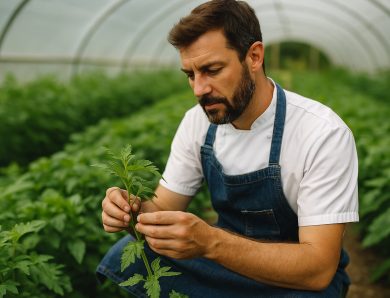
How Māori Traditions Influence Food and Land Today
Māori heritage continues to shape modern practices with a deep connection to food and land that transcends time. This article examines the enduring impact of traditional wisdom and customs on contemporary agriculture and natural resource management. The relationship with nature is woven into everyday practices and offers a model for sustainable living.
Cultural Foundations and Sustainable Practices
Māori traditions center on the idea that all life is interconnected. This perspective informs the way food is produced, managed, and shared. Ancient customs guide the cultivation of crops, the management of waterways, and the respectful harvesting of natural resources. Traditional knowledge has become an integral part of current initiatives in sustainable agriculture and environmental care.
Key practices include:
- Kaitiakitanga
Kaitiakitanga represents guardianship of the land and natural resources. Traditional guardians monitor the environment, ensuring resources are maintained for future generations. This concept influences modern methods of conservation and land management, where ethical stewardship is prioritized. - Mātauranga Māori
Traditional knowledge offers practical insights on weather patterns, soil fertility, and the timing of planting. Mātauranga Māori is applied in planning and executing agricultural practices that support biodiversity and promote ecological balance. - Rangatiratanga
Authority over land and decision-making about natural resources play a central role in Māori communities. This principle reinforces community participation in the planning and execution of projects that impact food production and environmental preservation.
Traditional Food Practices and Their Modern Influence
The production and sharing of food have long been a source of community strength and resilience. Today, local producers and culinary experts blend ancestral techniques with contemporary methods to produce food that respects the land.
Influential Food Practices
- Seasonal Harvesting
Traditional practices dictate that food should be gathered only at times that ensure the ecosystem can replenish. This seasonal approach minimizes waste and supports local biodiversity. - Community-based Cultivation
Collaborative efforts in food production promote social unity and shared responsibility. Traditional methods of working together in community gardens have been adapted by modern initiatives to ensure food security. - Native Plant and Animal Use
Many indigenous ingredients feature prominently in modern menus. These ingredients are celebrated for their unique flavors and nutritional benefits. The use of native species fosters pride in cultural heritage and encourages biodiversity.
Environmental Stewardship and Land Management
Māori customs contribute significantly to the practices of land management seen today. Traditional land care informs policies and projects that aim to safeguard natural ecosystems and promote regenerative practices.
Practical Land Management Techniques
- Rotational Land Use
Historical methods include rotating cultivation areas to prevent soil degradation. Modern agricultural practices mirror these techniques to maintain soil health and increase crop resilience. - Waterway Protection
Sacred waterways receive special attention under Māori traditions. Contemporary efforts to clean and protect water sources benefit from the wisdom of traditional practices, which prioritize the well-being of both people and the environment. - Native Ecosystem Conservation
Māori teachings stress the importance of preserving native flora and fauna. This approach has influenced policies that support conservation projects, ensuring that natural habitats are preserved for future generations.
The Role of Māori Values in Modern Food Innovation
The influence of Māori traditions is also visible in innovative approaches to food production. Culinary creators combine traditional ingredients with modern techniques to produce dishes that honor cultural heritage while appealing to contemporary tastes.
- Fusion of Flavors
Traditional ingredients such as kūmara and harakeke are now featured in innovative recipes. This fusion not only introduces new taste experiences but also highlights the nutritional value and cultural importance of native foods. - Artisanal and Small-scale Production
Many local producers draw inspiration from communal food sharing and seasonal production methods. Their practices ensure that quality is maintained and that environmental impact is minimized. - Cultural Education and Food Tourism
Programs that introduce visitors to Māori food traditions enrich local culinary scenes. These experiences provide insights into sustainable practices and highlight the cultural significance of indigenous ingredients.
Modern Impact on Policy and Community
Government bodies and local organizations increasingly acknowledge the value of traditional practices. Integrating cultural principles with modern policies promotes sustainable food production and effective land management. Communities engage in projects that honor their heritage while contributing to broader efforts in environmental preservation and food innovation.
Māori traditions continue to influence food and land today by providing timeless principles of respect, sustainability, and community. The continued application of these ancient practices not only strengthens cultural identity but also offers practical solutions for modern challenges in agriculture and environmental management.

No Comment